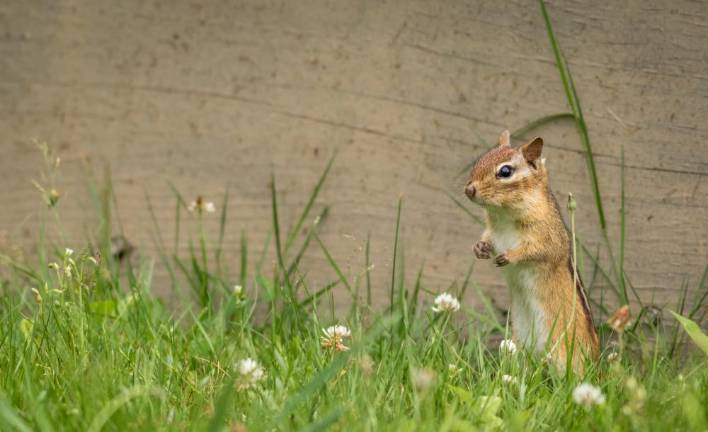Nouveau country
A Bronx girl’s uphill battle to tame her acre of earth

Late last winter, my husband and I purchased an old house in Warwick, a cozy Depression-era Cape Cod on an acre of property. For me, it was love at first sight, and this city girl could not wait to try her hand at country living. Once we moved in, I immediately got to work, clearing brush, chopping wood, building a raised garden bed...or so I imagined it would be. In actuality, none of this happened. My new country life had a learning curve I was quite unprepared for.
I am a Bronx kid, born and raised. I have always loved the idea of being close to nature, but the most nature we ever got on Allerton Avenue were a couple of scrawny squirrels at the playground, and Sunday nights with Mutual of Omaha’s Wild Kingdom on channel 7. So, here I was, with this lovely old house and all this property, and not much more than a strong determination to make it my own. First thing my daughter Zoe and I did, was to pick out that perfect spot for our raised garden bed. We impatiently waited for spring, and we filled the quarantine months combing through catalogues of heirloom seeds and perusing books on organic growing methods. We fantasy shopped for shovels and spades and railroad ties, and envisioned our perfect plot. But that April, before we could even put spade to dirt, Zoe and I both were diagnosed with Lyme, and this put a serious damper on our enthusiasm to dig and plant in our overgrown, tick infested wilderness of a yard.
For those unfamiliar with the ravages of Lyme, imagine constant nausea, relentless headaches, furious hot flashes and full body aches. It was in this state that we decided to put our meager Lyme-sapped energy into potting flowers and herbs. We’d hoped to grow everything from seed, but not having the gumption, we defaulted to buying seedlings from a local garden center, which proved to be much more expensive, but way less labor intensive, and hey, we’d have a patio full of flowers, and herbs to cook with right away! So Lyme be damned, we buckled down and schlepped sacks of organic soil, set up a potting table, and, in between breaks to collapse on the cool tile of our kitchen floor or pop into the bathroom for a quick vomit, we potted and potted and by the end of the day, we had our flagstones covered in lovely blossoms and aromatic herbs. We went to bed with dirt under our fingernails, sunburnt and drained, but satisfied we’d done a most excellent day’s work. But by the next morning, most of the flowers had been dug up and flung from the pots, and what remained were half dead, wilted and shrivelled. We valiantly repotted what survived, only to find the same scenario the following morning. This continued until most of our little flowers were all but destroyed, at which point we finally gave up.
It wasn’t until I caught the culprit tearing at the roots of my only remaining petunia that I realized what had happened to our precious potted garden: chipmunks, those adorable little rodents, had raided the pots for juicy millipedes and tender isopods, hidden in the cool moist soil beneath the canopy of leaves and flowers. Wait, what? Chipmunks eat bugs? I begged Zoe, my resident scientist, for answers. Not only will they eat bugs, she informed me, they will also raid bird nests for eggs and, horrifyingly, baby chicks. I made a mental note to take chipmunks out of the all things fuzzy-and-cute category and put them into the one occupied by plagues and murderous despots.
It was a frustrating feeling, being bested by a rampaging horde of two-ounce fuzzballs, and I plotted and schemed on how to eradicate them. Blast them from their holes with the garden hose? Fill the holes with rocks and turn our backyard into a miniature Valley of the Kings, entombing the wee rodents for eternity? I even imagined (and I cringe to admit this) resorting to poison, a horrifying thought for someone who captures and releases stink bugs, crickets, and (shudder!) those dreaded woodpile spiders. Zoe, wise in the ways of animalia, reminded me that chipmunks are only doing what nature has designed them to do, which is to survive. Ok, I get it. But I still wanted to hate them.
Although we admitted defeat on the potting project, we chalked it up to a lesson learned: critters don’t give a hoot about all your hard work. If there is an easy meal to be had, they will take it. I eventually found it in my heart to forgive the chipmunks for savaging my little garden of Eden, and even befriending one, a bold little guy who regularly showed up for bits of my morning toast. I named him, affectionately, Brutus.